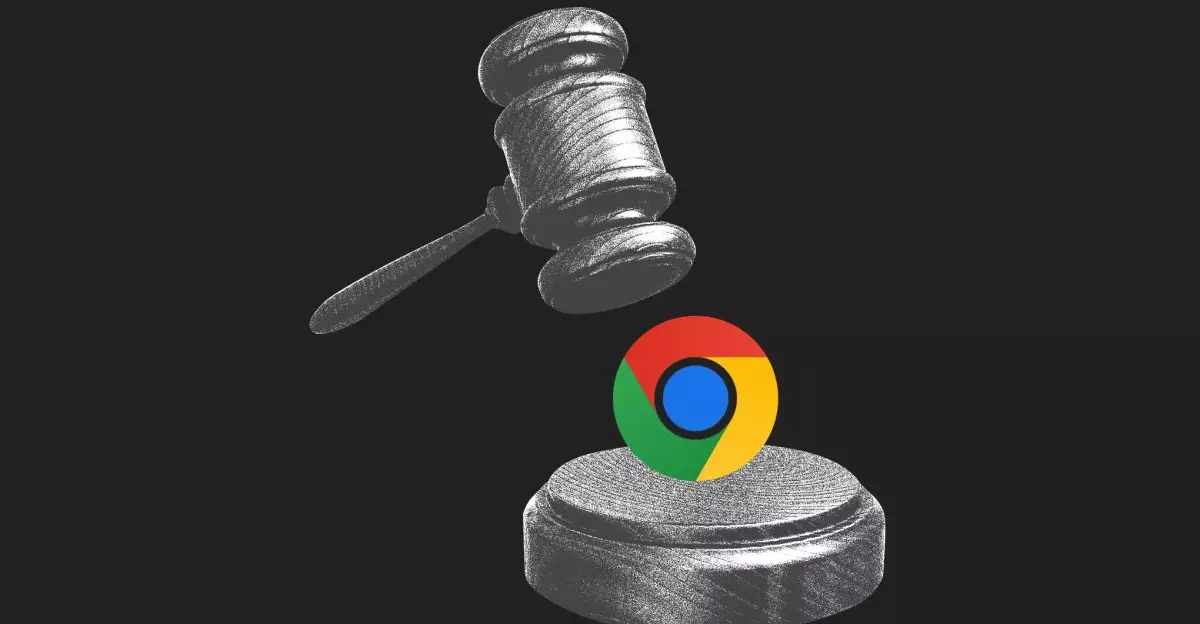In a remarkable twist of events, Google finds itself tangled in a web of legal scrutiny that could redefine the tech landscape. The recent testimony in an antitrust case has revealed a shocking facet of Google’s strategies: the colossal financial incentives it offers Samsung for preinstalling its AI assistant, Gemini, on the Galaxy S25. The implications of these hearings go far beyond a simple business arrangement, exposing the depths of monopolistic practices that might shape the very definition of competition in tech.
Gemini’s Rise: A Strategic Move or a Monopoly Power Play?
Launched with the Galaxy S25, Gemini quickly snatched the spotlight, supplanting Samsung’s homegrown Bixby as the default AI assistant. This switch raises critical questions about consumer choice and the authenticity of technological advancement. Are users genuinely benefiting from a superior product, or are they simply pawns in Google’s aggressive expansion strategy? When a tech titan like Google pays an “enormous sum” to dictate the terms of default applications on devices, it suggests a substantial imbalance in market control.
The backstory here is just as disconcerting. Underpinning this partnership, Google has been found to engage in practices that remain highly controversial, such as allegedly amending its agreements with device manufacturers just as the antitrust trial commenced. The situation escalates when we consider that other tech companies, including Microsoft and emerging players like Perplexity, had also courted Samsung with lucrative propositions, only to be outmaneuvered by Google’s entrenched interests and financial clout.
A Fragile Ecosystem: The Impact on Consumers and Competitors
The ramifications of such arrangements can be far-reaching. For consumers, the choice of an AI assistant is hindered. When a pre-installed application is ingrained into a device’s functionality, options become clouded. The convenience of Gemini might overshadow potential alternatives that could serve user needs more effectively. Such scenarios reflect a concerning trend where innovation is stifled, and genuine competition takes a back seat to financial maneuvering.
Additionally, competitors are left scrambling. If Google continues to secure exclusive deals by leveraging its monetary power, innovative startups may never see the light of day or the market share they deserve. The prospect of a single player dominating the market through artificially inflated agreements raises fundamental ethical concerns surrounding fair competition and antitrust regulations.
Legal Implications: Navigating the Turbulent Waters Ahead
Drawing attention to the legal domain, the Department of Justice’s (DOJ) position suggests an intention to rein in Google’s dominance through stricter regulations. The potential outcomes could reshape how tech companies structure their relationships with device manufacturers. Google’s arguments hinge on maintaining its ability to forge these default placement deals, positioning them as necessary for technological advancement. Yet, the counterarguments from the DOJ hint at a landscape where such practices may soon be deemed illegal.
The stakes could not be higher. If the courts decide in favor of more stringent limits on Google’s practices, the consequences could ripple through the entire tech industry. Crucially, the resolution could lead to transformative changes in how applications are marketed, installed, and, importantly, chosen by consumers. A future where users are genuinely empowered to select from a myriad of options instead of defaulting to Google’s offerings could very well reshape consumer behavior and expectations.
The Ethical Dilemma of Big Tech’s Influence
It’s essential to dissect the ethical dimensions of this case. At what point does financial backing become coercive rather than competitive? The line between promoting innovation and exercising market power blurs as one company’s dominance births an ecosystem less inclined toward genuine improvement and evolution.
As we consider the details of Google’s deals with Samsung and the broader implications for the industry, it becomes evident that the integrity of the market hangs in a delicate balance. With each testimony and piece of evidence introduced in court, the potential for change looms large. But will it be enough to dismantle the entrenched systems that have stifled competition for far too long? Only time will tell, but one thing is clear: the unfolding saga of Google’s Gemini underscores a volatile intersection of technology, law, and ethics that demands our vigilant attention.

